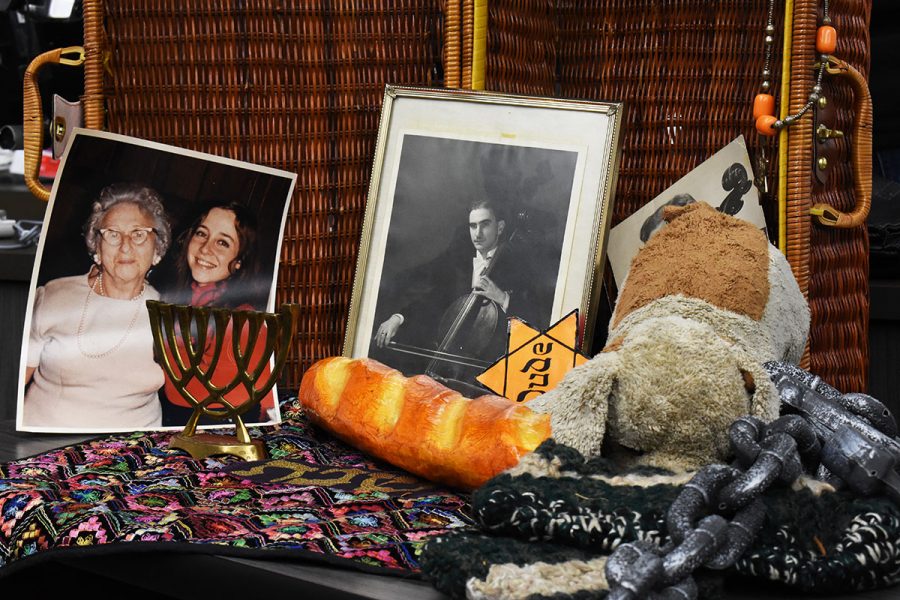‘Unearthing Family Secrets’
Musician and author Janet Horvath created a multimedia performance in remembrance of her parents’ struggle for survival
More stories from Madeline Peterson
Photo by Rachel Helgeson
A combination of cello music, photography and spoken word paid tribute to the lives lost and promoted a message of tolerance.
On Tuesday, students and community members gathered to experience a performance in remembrance of a time that must never be forgotten.
Janet Horvath, a Twin Cities-based cellist and author, shared her musical and written word abilities as she detailed her parents’ story as Holocaust survivors through verse, music and photography.
The performance was entitled “Unearthing Family Secrets,” and promoted the message of tolerance and the cessation of hatred. Audience members listened to spoken word and cello performances by Horvath, who was accompanied by pianist Heather McLaughlin.
In addition, the performance featured a slideshow of 180 photographs representing a wide range of cultures from around the world. Some were Horvath’s personal pictures, while others were from archives such as the United States Holocaust Memorial Museum.
Although the focus of the performance was the Holocaust, Horvath also recognized other genocides in the past centuries, such as those that have taken place in Cambodia, Rwanda and Armenia.
As the child of two Holocaust survivors, Horvath said she was acutely aware of her parents’ past while growing up. Because of the pain caused by the memories, her parents rarely spoke of what they’d experienced living in Hungary during World War II.
“I sensed a dark cloud hovering over us during childhood. My family was surrounded by an eerie hush, and music was our lifeline,” Horvath said.
Horvath’s father George was a skilled cellist, performing with the Budapest Symphony prior to the war. Horvath received the first concrete detail about her father’s past when he disclosed in 2009 that he’d performed with renowned composer Leonard Bernstein in a Jewish Orchestra taking place in a displaced persons camp.
“My performance is called ‘Unearthing Family Secrets’ because that’s what I had to do in the last year of my father’s life,” Horvath said, referring to the numerous hours she’s spent researching her family’s past.
Like her father, Horvath is also an accomplished cellist. According to Horvath’s website, she has served as the associate principal cello for the Minnesota Orchestra from 1980 to 2012 along with performing for numerous symphonies around the country. In 1986 she made her international debut in London at Wigmore Hall.
Ana Erickson, a psychology student, first heard of the performance through the class she is currently taking on the Holocaust. She enjoyed the impact that the music had on Horvath’s message, Erickson said.
“The most powerful part for me was the cello music,” Erickson said. “(Horvath) was fantastic.”
Horvath performed a number of pieces chosen for their personal significance and the diverse composer nationalities they reflected, such as “So Pretty” by Leonard Bernstein and “Nana” by Manuel de Falla. Horvath said she values the cello as an instrument because of its similarity to the human voice.
“I’m going to speak to (the audience), and then I hope the cello speaks too in ways that words can’t,” Horvath said.
Currently, Horvath is working on a book about her parents’ experiences, titled “Piercing the Silence: A Memoir in Three Concerts.” Her performance biography states that the memoir is intended to “stimulate dialogue about inequality and the ramifications of intolerance, especially now that the Holocaust generation is almost gone.”











